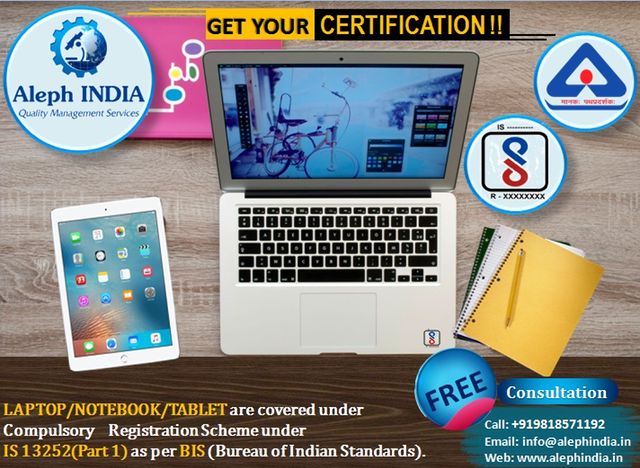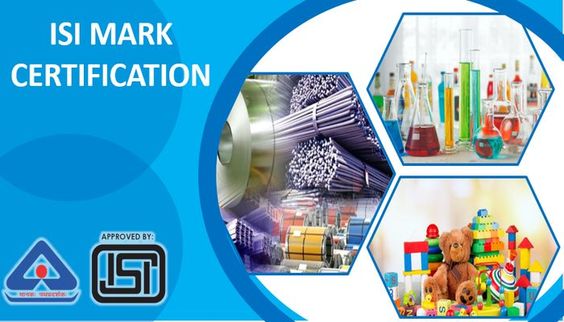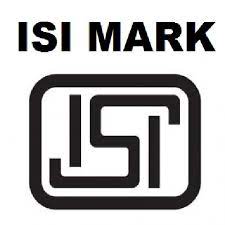A quick guide to BIS certificate scheme
BIS Certification :
The Bureau of Indian Standards (BIS) in India issues Indian BIS certification. The BIS certification is considered as third party assurance of customer’s product safety, quality and reliability. The BIS is involved in many activities like testing, hallmarking, standard formulation, product certification, and calibration schemes.
The BIS certification for some products is optional however, due to public health concerns the Indian Government has made it mandatory for certain products. As per the Government’s notification, BIS certification is necessary for 380 products. The BIS certification allows the license holders to use the ISI mark on their products. The ISI mark indicates that the product is of good and high quality.
The BIS is an Indian national standards agency that helps in promoting and regulating the standards of products and goods in India. In India, the BIS has set up eight central, four regional, and three branch laboratories to test the product samples during preliminary and surveillance operations.
Even though BIS certification is voluntary, the government encourages it for the following purposes:
- It offers a safeguard to public health.
- It offers quality assurance.
- It protects the consumer from unsafe products.
- It promotes the confidence of the consumers.
Advantages of BIS Certification :
The BIS certification registration provides the following benefits :
- It ensures the standard of quality as BIS registration products are bound to comply with certain standards at the time of production of goods.
- It gives authenticity to BIS licensed products as they deliver outstanding and high quality performance and reliability.
- BIS-certified products minimize environmental risks as BIS has prohibited the use of chemical compounds and substances below its prescribed norms.
- BIS registration is granted after trying out the samples of the products in BIS set-up laboratories and ensures the fine inspection and high quality of products.
Products that lies under BIS Certification :
- There are various categories of products that require a BIS certificate for import.
- Total there are 380 products overall that require BIS certification.
- Any manufacturer can also acquire voluntary BIS certification for products as it suggests high quality and standards of the products to the customers.
- Under the compulsory registration scheme, the Ministry of Electronics and Information Technology notified compulsory BIS registration for certain electronics and information technology products.
Various Types of BIS registration schemes :
1. ISI Mark Scheme Registration for Domestic Manufacturers :
- The manufacturers of products that come under the mandatory BIS certification have to register through the standard procedure.
- On the other hand, certain products that require mandatory certification are also included in the list of products that come under simplified registration.
- Manufacturers of mandatory BIS certification products should register them through the simplified method rather than the usual procedure when they are mentioned under the products eligible for streamlined registration.
- The manufacturer of a mandatory BIS certification product has to submit a BIS registration application to the authorized officer of the jurisdiction where the manufacturing unit is located via standard BIS certification procedures.
- The product’s manufacturer must submit form 5 of the BIS registration application together with the appropriate paperwork and fees.
2. Registration under the simplified procedure for domestic manufacturers:
- The BIS introduced a simple approach to speed up the process of granting the BIS license.
- Manufacturers of products listed under the simplified procedure must apply for BIS certification using the simplified procedure.
- Under this simplified procedure, the BIS license is granted within 30 days of submitting the BIS certification application.
- The simplified procedure is applicable for granting BIS license of all India first license cases and all the products listed under the following circumstance :
-Products that require clearance from another legislative authority, such as valves, cylinders, cement, and so on.
-All items for which a BIS license is issued based on factory testing.
3. Eco Mark scheme Registration :
- The BIS also certifies environmentally friendly products under the Eco mark scheme.
- Under this scheme of BIS categories all environmental goods that meet the fundamental standards of Indian Standards come under this system.
- The BIS grants the products an ‘ECO’ logo along with an ‘ISI Mark’.
4. Foreign Manufacturers certification scheme :
- Under the Foreign Manufacturers Certification Scheme (FMCS), the BIS grants the specifically developed ISI mark to overseas applicants or foreign manufacturers within 6 months.
- Under the Compulsory Registration Program (CRS) and the compulsory BIS certification scheme, BIS for foreign manufacturers can get BIS certification for their products.
- The international applicant must submit the BIS registration application form, along with the required documentation and fees, to the BIS.
Therefore, This is a small brief about the BIS certificate scheme and the advantages of BIS certification.




Comments
Post a Comment